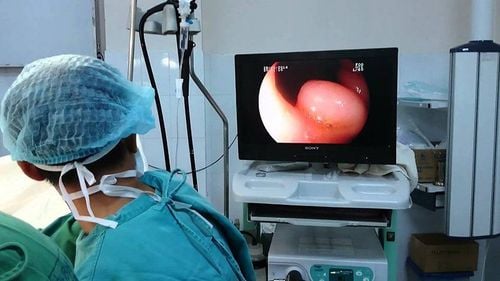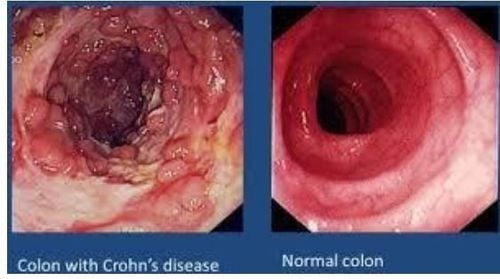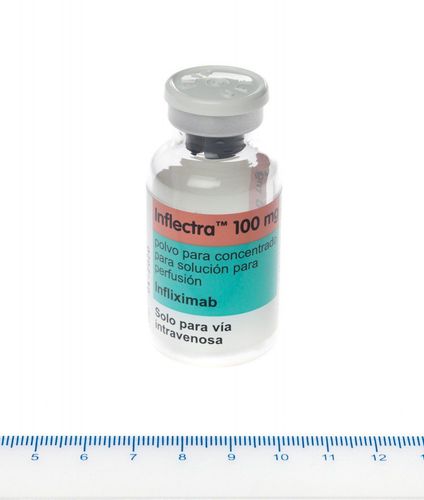This is an automatically translated article.
Posted by Doctor Mai Vien Phuong - Department of Examination & Internal Medicine - Vinmec Central Park International Hospital
Capsule endoscopy (CE) and assistive small bowel endoscopy (assisted small bowel endoscopy) have greatly expanded the diagnostic capabilities of small bowel diseases. Capsule endoscopy provides a noninvasive test for visualization of the entire small intestinal mucosa, which can aid in the diagnosis of small bowel Crohn's disease and monitor response to treatment.
1.Difficulty in diagnosing inflammatory bowel disease in the small intestine alone
Inflammatory bowel disease (IBD) represents a group of chronic inflammatory disorders involving the colon, small intestine (SB) and the entire gastrointestinal tract and includes Crohn's disease, ulcerative colitis (UC) and other diseases. unclassified entity. Crohn's disease Crohn's disease is an immune-mediated chronic inflammatory disease that usually involves the ileum and colon, but at the time of diagnosis it may be confined to the small intestine, as seen in about 30% of patients. Crohn's disease, especially in younger patients.
Small bowel Crohn's disease alone can be difficult to diagnose and manage for a number of reasons. First, small bowel Crohn's disease alone is more difficult to access with endoscopy, making it easier to miss the diagnosis of small bowel Crohn's disease with conventional endoscopy, which contributes to the delay in diagnosis as observed in many patients with Crohn's disease. . Second, small bowel ulcers caused by infections (such as tuberculosis) or medications can sometimes be difficult to distinguish from Crohn's disease. Third, compared with other phenotypes, small bowel Crohn's disease alone is associated with an increased risk of recurrence and serious development. Fourth, small bowel cancer associated with small bowel Crohn's disease is a rare but difficult problem because only a small number of these cases are diagnosed preoperatively and at an early stage. Finally, in the pediatric population, small bowel Crohn's disease alone is of particular clinical relevance because of its negative impact on pubertal growth and development.
Therefore, objective assessment of the small intestinal mucosa is essential in distinguishing Crohn's disease from other bowel diseases for treatment decisions and follow-up planning.
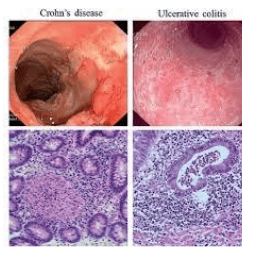
2.Small bowel endoscopy – a new prospect in the diagnosis of small bowel inflammation
For many years, examining the small intestine has been a challenge because of its anatomical nature, location and relative torture. The advent of cross-sectional imaging techniques such as computed tomography (CT) and magnetic resonance imaging (MRI), computed tomography of the intestine/digestive tract, and SB ultrasound, has enhanced the pathological assessment small intestine with high accuracy in assessing whole-mucosal and intraluminal disease, but subtle mucosal changes can still be missed.
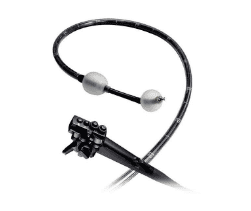
Capsule endoscopy (CE) and assistive small bowel endoscopy (assisted small bowel endoscopy) have greatly expanded the diagnostic capabilities of small bowel diseases. Capsule endoscopy provides a noninvasive test for visualization of the entire small intestinal mucosa, which can aid in the diagnosis of small bowel Crohn's disease and monitor response to treatment. The main limitations of Capsule Endoscopy in IBD patients are low specificity, lack of therapeutic potential, and inability to perform biopsies.
Device-assisted small bowel endoscopy allows histological confirmation when other modalities, such as traditional endoscopy, capsule endoscopy and cross-sectional imaging, are inconclusive and permit interventions treatments, such as balloon dilation, intraoral steroid injections, capsule removal, and more recently stenting.
3. Small intestine endoscopic devices
DAE-assisted small bowel endoscopy is a generic term for any endoscopic technique that includes procedures assisted by other devices (eg, balloons, overtubes, or other devices) and includes dual-balloon enteroscopy (dual-balloon enteroscopy), single-balloon enteroscopy (SBE), balloon-guided endoscopy (BGE), and spiral small bowel endoscopy ( SE).
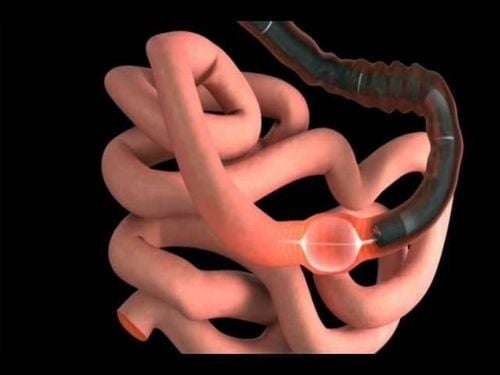
Vinmec International General Hospital is a high-quality medical facility in Vietnam with a team of highly qualified medical professionals, well-trained, domestic and foreign, and experienced.
A system of modern and advanced medical equipment, possessing many of the best machines in the world, helping to detect many difficult and dangerous diseases in a short time, supporting the diagnosis and treatment of doctors the most effective. The hospital space is designed according to 5-star hotel standards, giving patients comfort, friendliness and peace of mind.
Please dial HOTLINE for more information or register for an appointment HERE. Download MyVinmec app to make appointments faster and to manage your bookings easily.





